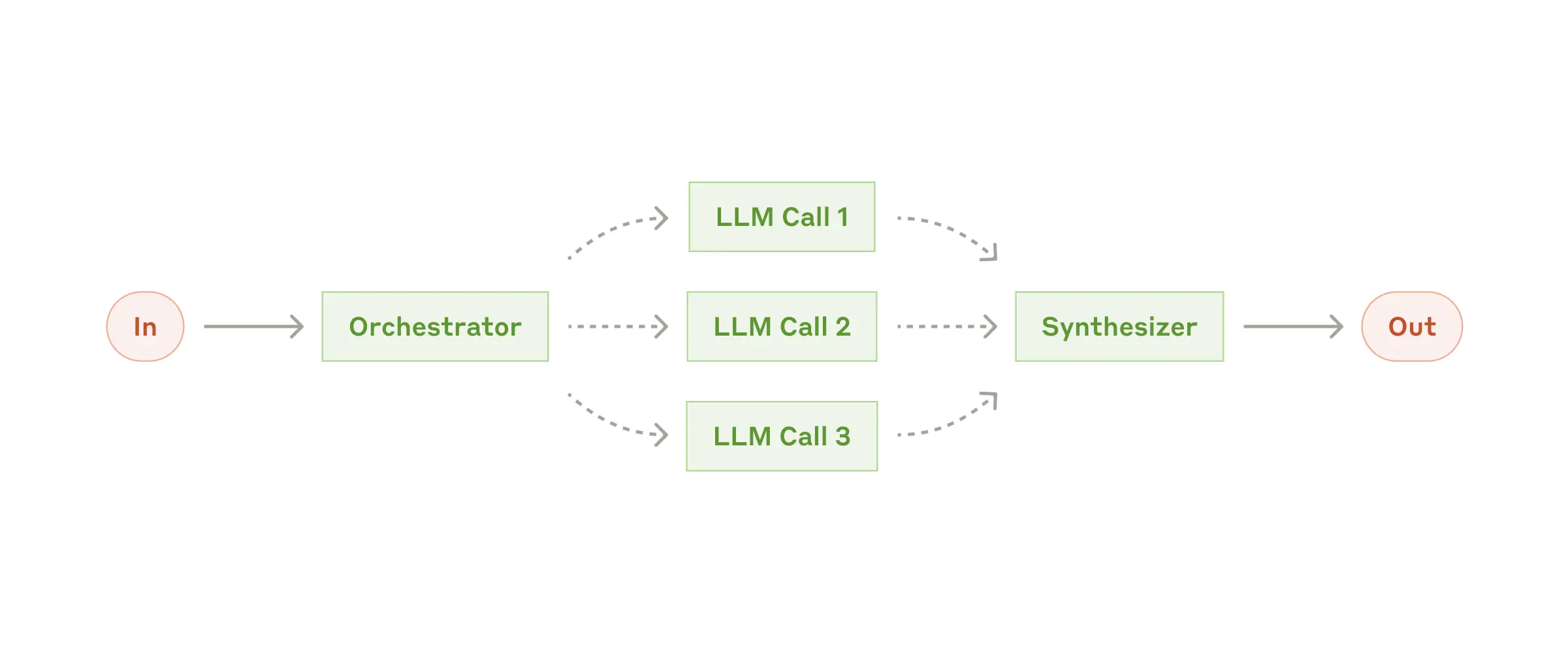Workflow Patterns
Orchestrator
Complex multi-step workflows with dependency management and state coordination.

Overview
The Orchestrator pattern handles complex, multi-step tasks through dynamic planning, parallel execution, and intelligent result synthesis. It breaks down objectives into manageable steps and coordinates specialized agents.Quick Example
Key Features
- Dynamic Planning: Breaks down complex objectives into manageable steps
- Parallel Execution: Tasks within each step run simultaneously
- Iterative vs Full Planning: Choose between adaptive or upfront planning
- Context Preservation: Previous results inform subsequent steps
- Intelligent Synthesis: Combines results from multiple specialized agents
Planning Modes
Full Planning
Iterative Planning
Use Cases
- Complex Coding Tasks: Multi-file modifications with dependencies
- Research Projects: Gathering and synthesizing information from multiple sources
- Content Creation: Multi-stage content development with review cycles
- Quality Assurance: Multi-dimensional testing and validation workflows
Full Implementation
See the complete orchestrator example with student assignment grading workflow.
